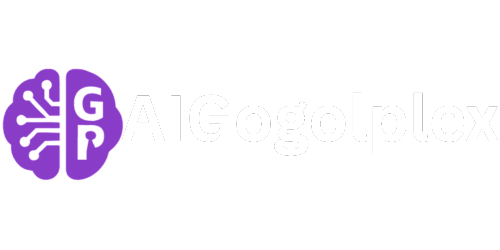Can AI really revolutionize your SEO strategy in 2025? The answer might surprise you. With search algorithms evolving fast, traditional tactics are losing ground. This guide explores how AI is reshaping the way we rank, research, and write. If you’re ready to future-proof your content and climb the SERPs, keep reading you’re in the right place.
What Is AI in SEO? Breaking Down the Basics
AI in SEO refers to the use of artificial intelligence tools and technologies to analyze, automate, and enhance various aspects of search engine optimization. From identifying the best keywords to optimizing content for user intent, AI is no longer just a buzzword it’s the backbone of smarter SEO strategies.
Unlike traditional SEO methods that rely on manual research, AI leverages machine learning and natural language processing to interpret data, predict trends, and improve decision-making in real time.
Why 2025 Is a Game-Changer for AI-Driven SEO
As search engine algorithms grow more sophisticated, SEO is evolving into a field where human intuition and machine intelligence must work hand in hand. In 2025, AI is expected to dominate digital marketing more than ever.
With tools like Google’s RankBrain and BERT already using AI to better understand search queries, businesses must adapt or risk falling behind. The rise of voice search, visual search, and AI in digital marketing trends and tools is reshaping how content is created, optimized, and ranked.
Common Myths About AI in SEO (And the Truth)
- Myth: AI will replace SEO professionals.
Truth: AI enhances human efforts it doesn’t eliminate them. - Myth: AI-generated content always ranks better.
Truth: Without human editing, AI content can miss the mark on tone, clarity, or intent. - Myth: All AI tools deliver the same results.
Truth: Results vary greatly depending on how the tool is used and integrated into strategy.
How AI Enhances Keyword Research and Search Intent
AI has redefined keyword research by uncovering long-tail keywords, semantically related phrases, and search intent behind user queries. It doesn’t just look at what people are searching it figures out why they’re searching it.
Tools like SEMrush’s Keyword Magic Tool or Ahrefs with AI integrations can analyze millions of queries to surface intent-driven opportunities faster than any human could. This means marketers can spend less time guessing and more time creating content that hits the mark.
AI-Powered Tools That Are Shaping SEO Success

The market is overflowing with powerful AI tools that are transforming the SEO landscape. These platforms not only simplify workflows but also give marketers deep insights and automation never before possible.
Surfer SEO
Surfer SEO uses AI to analyze the top-performing pages for any keyword and provides data-driven recommendations. It evaluates keyword density, content structure, and backlink profiles—everything needed to outrank the competition.
Jasper AI
Known for content generation, Jasper AI creates SEO-optimized articles, meta descriptions, and more. Its natural language capabilities make it a go-to tool for marketers who want content fast without sacrificing quality.
Clearscope
Clearscope bridges the gap between AI insights and human creativity. It provides keyword grading, readability tips, and competitive benchmarks to help you craft content that Google loves and readers actually enjoy.
These tools aren’t just for big brands either. Even startups and small businesses can harness their power to compete on a global scale. Curious how AI powers other content strategies? See how AI tools for social media campaigns are reshaping engagement.
Content Creation with AI: Quality vs Quantity
One of the biggest debates in SEO today is whether AI content can match human-crafted copy. The answer? It depends on how it’s used.
AI excels at scaling content production, but without proper oversight, the output can feel robotic. That’s why a hybrid model where humans review and refine AI drafts is ideal. For example, brands are already embracing AI-driven content creation for brands while maintaining a strong editorial voice.
It’s not just about quantity. The smartest marketers use AI to create more strategic, search-intent aligned, and user-friendly content at scale.
How AI Personalizes the User Experience for Higher Rankings
Search engines reward content that keeps users engaged. AI helps personalize experiences by dynamically adjusting recommendations, headlines, and even content layout based on user behavior.
Think of Amazon’s homepage no two users see the same thing. SEO is heading in the same direction. Personalized pages keep bounce rates low, session times high, and conversion rates up. These behavioral metrics increasingly influence SEO rankings.
Potential Risks and Ethical Concerns to Consider
While AI brings efficiency, it also raises important ethical concerns. Overreliance on automation can lead to generic content, reduced creativity, and even misinformation. There’s also the risk of search engine penalties for AI-generated spam.
Transparency matters. Be clear when AI is involved, and always review outputs to maintain quality and trust. Want a broader view of AI’s impact beyond SEO? Explore the truth about AI’s role in everyday life.
Practical Tips to Integrate AI Into Your SEO Workflow
- Start small: Use AI for repetitive tasks like keyword clustering or meta tag generation.
- Choose the right tools: Match your needs writing, research, technical SEO with platforms that excel in that niche.
- Stay human: Always add your brand’s voice. Use AI to assist, not replace.
- Review regularly: Algorithms evolve. Keep testing and adjusting to stay ahead.
Integrating AI isn’t just a trend it’s a competitive necessity. Those who adopt it wisely will lead the SEO pack in 2025 and beyond.
Conclusion
AI for SEO optimization isn’t just the future it’s the now. From smarter keyword research to AI-driven content creation, 2025 is all about working with machines, not against them. Use this guide to gain an edge, stay competitive, and let data-driven insights do the heavy lifting. Ready to dominate search rankings? Start integrating AI today.

